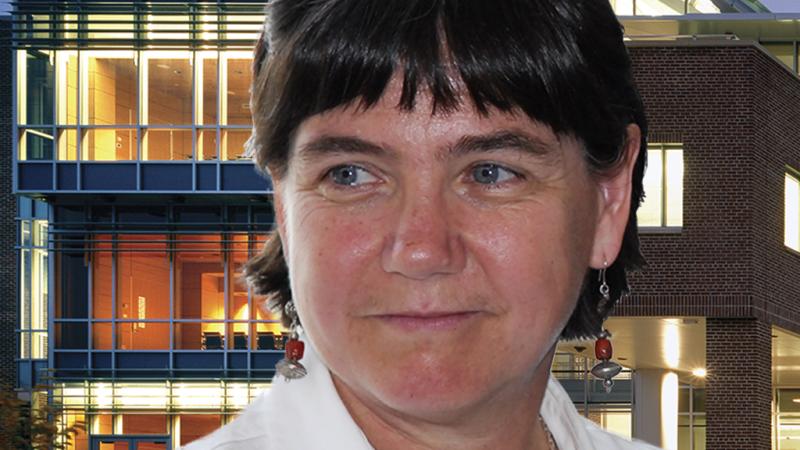August 6, 2013

Catherine Royer, an expert in molecular biophysics, has joined Rensselaer Polytechnic Institute as a Constellation Chair in Biocomputation and Bioinformatics, and Professor in the Department of Biology in the School of Science. Royer is currently director of the Centre de Biochimie Structurale in Montpellier, France. She will join Rensselaer this month.
“Dr. Royer is a leading world expert in the fields of biological fluorescence, protein thermodynamics, and high-pressure biophysics. Her investigations into the effects of high pressure on proteins have allowed for biomaterials characterization that will lead to new advances in the pharmaceutical industry,” said Rensselaer Provost Prabhat Hajela. She joins computation expert Professor Angel Garcia and protein structure expert Professor George Makhatadze in the Biocomputation and Bioinformatics Constellation. “I am excited by the degree of complimentarity in their research interests and strengths – we look forward to new and significant advances in research and teaching in this area at Rensselaer.”
Royer’s research seeks to understand the physical mechanisms by which biological molecules work. She has a particular interest in the mechanisms at play as DNA is transcribed into messenger RNA – with particular attention to a group of transcription factors called nuclear receptors – and in the folding of proteins that have been synthesized by the ribosome.
“Molecular biophysics is trying to understand how biological molecules work – the real physical mechanisms of action and control that occur as the molecule works,” said Royer. “In biological molecules, what’s interesting is that this sequence of events has been subject to the pressure of natural selection. Biology, life or death, hangs on very little energy, and, if a molecule behaves in a particular way, you must know that it was necessary for the organism to survive.”
Royer is an expert in the use of fluctuation microscopy, a technique that allows her to gather quantitative data on protein interactions in live cells.
“We are able to see where in a cell the proteins are interacting and how much they’re interacting,” Royer said. “That spatial information is very important, and it’s very difficult to obtain.”
Her work has included studies of estrogen receptors, a target for breast cancer research; retinoid receptors, which have been linked to leukemia; and the Rev-ErbA alpha receptor, implicated in type 2 diabetes.
“Understanding how these receptors work is critical. If we can understand how they work, we can develop drugs that modulate the way they work to our benefit,” Royer said.
Royer first joined the Centre de Biochimie Structurale, in Montpellier, France, in 1996 as a visiting director of research. She has served as director of the center since 2007. Royer earned her doctorate in biochemistry at the University of Illinois at Urbana-Champaign, a licence in biochemistry from the Université Pierre et Marie Curie, and a general academic studies degree in natural sciences from the Université Pierre et Marie Curie.
“My work is somewhere between chemistry, physics, and biology, and I was really attracted by the interdisciplinary nature of research, and the institute-wide support for interdisciplinary research at Rensselaer,” said Royer.
Constellations are multidisciplinary teams of senior faculty, rising faculty, graduate students, and undergraduates at Rensselaer. Each constellation includes several star researchers in a particular area. Each is designed to help Rensselaer attract and retain exceptional researchers, educate students in socially important and emerging areas of research, and achieve global impact.